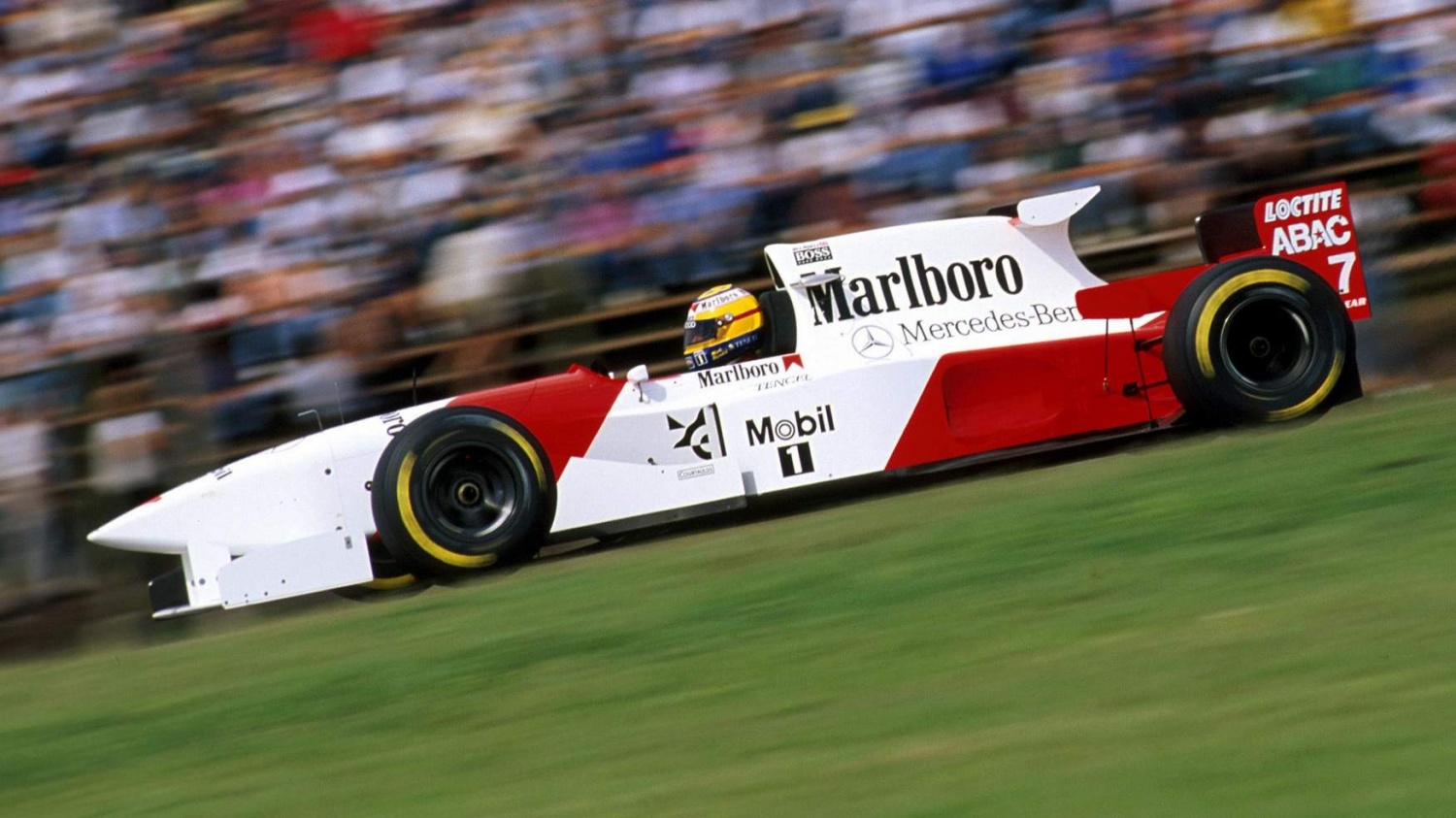
Tragedy denied Stefan Bellof his days glory
Read More
Kremer Racing's epic victory at the 1979 Le Mans 24-Hours
Read More




It seems just yesterday that people said it would be impossible for anyone to ever match Michael Schumacher’s record seven Formula 1 World Championships, but believe it or not, Lewis Hamilton is just one title away from that incredible mark as he rides the crest of the F1 wave.
So, for all intents and purposes, Formula 1’s 70th year 2020 is set to be a significant record matching and breaking year, not just for driver’s titles, but there is so much more at stake than just Hamilton matching the great Schumacher’s seven world titles.
Another major F1 mark in Hamilton’s crosshairs has to be Schumacher’s 91 grand prix victory mark — with Lewis already on 84 wins, he is now just seven behind and safe from Sebastian Vettel in third. It now seems a matter of when, not if Hamilton will eclipse that incredible achievement, although there is little chance Lewis will ever beat Juan-Manuel Fangio’s half-century old 46% win ratio.
Most Wins
Hamilton is already well clear of Schumacher on percentage of races won, where he sits fourth and mighty close to eclipsing Jim Clark in third. He will however need to win close to half of this years races to pull that one off, but that is nothing Lewis Hamilton has not achieved before as he also continues to close on Michael's 15-consecutive-seasons-with-a-win mark at 13 so far.
Whatever happens in 2020, Hamilton will quite interestingly remain the man to start the most consecutive ever grands prix, while he will move two places up to second in the most races in a single make at Mercedes as the season progresses. Max Verstappen’s youngest race winner record is also relatively secure, as is Luigi Fagioli’s oldest. The winner of the first-ever GP, Nino Farina, once off Indy 500 winner Johnnie Parsons and Giancarlo Baghetti remain the only ever drivers to win on their Grand Prix debut.
Micheal Schumacher’s record of five consecutive world titles also safe — for now that is, as Hamilton’s current run of three titles on the trot puts him one behind Sebastian Vettel and Juan-Manuel Fangio’s four. Hamilton further shares his two-seasons-to-win a-title record with Jacques Villeneuve and that one seems safe for now, but is Sebastian Vettel’s youngest champion gong safe from his teammate this year? Time will tell...
Lewis Hamilton, Sebastian Vettel and Fernando Alonso top the cumulative F1 points scoring list with Kimi Raikkonen only 40 points behind in fourth. Hamilton furthermore already holds the record for the most points scored in a season, the most consecutive points finishes and twice for the most consecutive points scored in a season.
Sweeping Clean
Lewis is also just two races away from Jim Clark’s 8 races started from pole with every lap led and a fastest lap and he needs just five podiums to surpass Michael’s record 155, while he and Vettel share the most podiums in a season record with Schumacher, who still holds a handy advantage with the most consecutive podiums in a season.
Hamilton has meanwhile already scored more F1 pole positions than any other driver and there remains a fair chance that he will even reach the magic 100 pole position mark this year. That is something beating Ayrton Senna’s 8 consecutive pole mark would go a long way to help achieve, while an Aussie pole will see to Hamilton setting yet another new record of 9 poles at the same race.
Sebastian Vettel was the youngest driver ever to sit on pole position and has taken the most pole positions in one season, while Michael Schumacher remains well ahead of Hamilton with 77 fastest laps to 47, with Kimi Raikkonen just one behind in third.
Max Verstappen is also the youngest man to set a fastest lap, score points, finish on the podium and win a race, but he also stands every chance of moving well up the list of most grands prix won without winning the world championship from his current 8-win ninth place.
Also at the other end of the scale, Sergio Perez and Romain Grosjean have qualified for the most races of all F1 drivers in history without a pole position, while Valttieri Bottas is creeping up the most podiums without a title list and Carlos Sainz is the driver who started the most races before finishing on the podium. Perez also needs to win in Australia to prevent him from moving up in the most races without a win stakes and by Azerbaijan to leapfrog Nico Hulkenberg and Nick Heidfeld and go second behind Andrea de Cesaris, with Romain Grosjean following close in his footsteps.
All things being equal, Kimi Raikkonen will become the most prolific driver in F1 when he surpasses Rubens Barrichello’s 326 starts at the British Grand Prix in June, while Hamilton will vault up to joint fifth with another Brazilian, Felipe Massa, by the end of the season, behind Fernando Alonso and Michael Schumacher in second and third. A rule change should see Max Verstappen remain the youngest ever F1 driver for a while to come yet, and 55-year old Lous Chiton’s longstanding grand prix grandfather status is quite safe too.
Team Chasing Records Too
Moving on to the teams, Ferrari is by far the most successful F1 team of all time with 238 wins over McLaren and Williams, but Mercedes is only 12 wins behind in fourth. Is it however quite plausible that should Mercedes win as many races as it did in 2019, it will move up to third this year.
In doing that, Mercedes' success rate will become better than winning half the races it ever started over its twin Formula 1 eras of the 1950s and 2010s, versus second best Ferrari at 24% all be that through a far longer involvement. Red Bull is also within striking distance of Lotus in fifth, while Renault will move clear of Brabham in 7th, were Ricciardo or Ocon to win a race this year.
A record 22 races this year makes it a little more plausible for the winningest team of 2020 to beat Mercedes’ 2016 record of 19 wins in the season, although nobody except Merc would be happy with that. That should also help McLaren maintain its grip on its 94% 15-out-of-16 wins 1988 win ratio record.
Moving on to grand prix starts, Ferrari should reach a milestone 1000 grands prix raced by Canada in June, that is of course if the Scuderia starts all the races until then as Maranello has twice abstained for racing in the 70 years of Formula 1. Ferrari raced the first ever GP at Silverstone in 1950 and there have been 1018 races since then.
Still contemporary, McLaren and Williams have raced the second and third most GPs at 863 and 719 respectively, while perennial Alfa Romeo, which also raced and dominated that first grand prix, is run by Sauber today and that team will close right up on the defunct Lotus’s fourth most GPs raced this year. The Australian GP will meanwhile see another perennial F1 team, Renault move up to 8th over Arrows in GP starts.
Other interesting records open to being beaten include Ferrari’s 21 German, 19 Italian, 18 Belgian, 17 French and 16 British Grand Prix wins, while Mercedes will be looking to beat go one up of McLaren in winning the same race six times consecutively in Russia, Japan and Abu Dhabi.
Arrows’ most GPs without a win record is however safe, as is Ferrari’s 84-race 1-2 record, Mercedes’ 25% 1-2 rate and its double 19-time 1-2 record in 2014-15, while Ferrari’s significant record 582 podiums and 53 consecutive podiums are presently untouchable. Haas however stands an equal chance of charging up to third in the all-time races without a podium list, albeit well behind Minardi and Osella.
Ferrari’s total points scored in both drivers and makers’ championships and its 228 pole position record are also safe as houses, while Mercedes can only drop back behind two-season Lancia in its 53% of pole positions scored.
F1’s record 22 race season also makes the most points scored in a season record scored quite attainable thanks to to the liberal modern points system.
So there you have it — 2020 certainly promises to be a record Formula 1 year on so many fronts on the sport's 70th birthday — bring it on! (Photo: Mercedes)